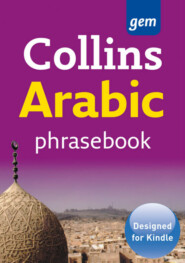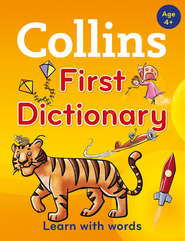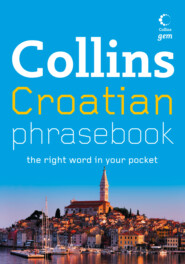По всем вопросам обращайтесь на: info@litportal.ru
(©) 2003-2025.
✖
Collins Primary Grammar, Punctuation and Spelling
Автор
Год написания книги
2019
Настройки чтения
Размер шрифта
Высота строк
Поля
Sadly, Jackie can’t come on Friday.
Prepositions
A preposition is a word that is used before a noun or a pronoun to describe how things are related or connected to each other. For example, prepositions can tell you:
• where a person or thing is:
a cat in the garden
a book on the table
a sock under the bed
Other prepositions like this include:
• the movement of something or someone:
The train came into the station.
We pushed through the crowd.
Other prepositions like this include:
• they also show how things are related in time:
I haven’t seen my auntie since last week.
Conjunctions
A conjunction is a word that is used to join two words or two parts of a sentence together. There are two main types of conjunction.
Co-ordinating conjunctions
A co-ordinating conjunction joins two things that are as important as each other:
I love fish and chips.
It was dry so I walked home.
You can have a biscuit or a cake.
She has neither mother nor father.
It can also show a contrast between two things:
Joe is having a birthday party but he hasn’t invited me.
Subordinating conjunctions
A subordinating conjunction introduces a clause which is less important than the main part of the sentence:
The teacher was angry because the pupils would not pay attention.
Mark read his book while he waited for his mum to arrive.
I must tell you some exciting news before we get started.
Some dogs go a bit crazy when it’s windy.
Pronouns
A pronoun is a word that is used in place of a noun. You use a pronoun instead of repeating the name of a person, place or thing:
Rachel lives next door to me. Rachel is in my class.
> Rachel lives next door to me. She is in my class.
That is the book I am reading just now. The book is very funny.
> That is the book I am reading just now. It is very funny.
I like to sit in the garden. The garden is very sunny.
> I like to sit in the garden. It is very sunny.
Personal pronouns
You use a personal pronoun instead of the subject or object of a sentence:
She is good at maths.
Nobody likes him.
Possessive pronouns
You use a possessive pronoun to show that something belongs to a person or thing:
We had to move out when our house was flooded.
I think the blue jacket is mine.
The dog buried its bone in the garden.
Relative pronouns
You use a relative pronoun instead of a noun to join two different parts of a sentence. The relative pronouns are who, whom, whose, which and that. They introduce information about a noun in an earlier part of the sentence. This noun is known as the antecedent. You use who, whom and whose when the antecedent is a person, and which and that when it is not a person.
who: You use who when the antecedent is the subject of the second clause.











